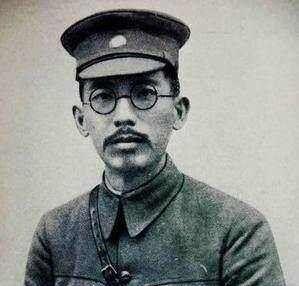Although it has been 80 years since the Nanjing Massacre was mentioned, the blood and shame of Nanjing in that year are still vividly remembered, always warning us to "not forget the national shame". Therefore, a kind of blame and insult invisibly fell on Tang Shengzhi, the supreme commander of the Nanjing Defense War, and came to see this special Kuomintang big man with the hatred of the country and the family.

The name Tang Shengzhi appears in the most popular historical materials in people's field of vision, that is, in the historical materials related to the Nanjing Defense War, this person was a very famous and big figure before the outbreak of the War of Resistance Against Japan. During the Northern Expedition, Chiang Kai-shek served as commander-in-chief, and the commander-in-chief of the former enemy was General Tang Shengzhi, and among the eight armies under his command were Li Zongren, He Yingqin, Li Jishen, Cheng Qian, and others.
Throughout Tang Shengzhi's life, it seems that there are no remarkable major events, of course, he has opposed Chiang Kai-shek three times, but in the end Chiang Kai-shek also took him helplessly. In 1935, the Kuomintang awarded nine people to be first-class generals in the army, and this rank was equivalent to the rank of ten marshals of our army, and Tang Shengzhi was one of them.
After the outbreak of the War of Resistance Against Japanese Aggression in 1937, after the rapid fall of the three eastern provinces, the Japanese army fought with lightning, known as the slogan of "destroying China in three months", and the soldiers pointed directly at Nanjing. When the Kuomintang deeply felt that Nanjing was in danger, Chiang Kai-shek's position in defending Nanjing also showed hesitation with the wavering of many officers, and when Chiang Kai-shek asked who would like to serve as the commander of the Nanjing garrison, no one present dared to say a word. Tang Shengzhi, who was serving as the director of the Kuomintang's training director department at this time, suddenly stood up and said: "The Japanese Kou have approached Nanjing, which is not only the heart of China, but also the mausoleum of the Father of the Nation." How can a prime minister be worthy of the prime minister without sacrificing a few generals? I am willing to stick to Nanjing!"
Tang Shengzhi's generous and blunt words not only gave Chiang Kai-shek an embarrassing scene to relieve the siege, but also gave a thumbs up to the Kuomintang general present. He assured Chiang Kai-shek that he would "live and die with Nanjing and make the Japanese army pay a heavy price." Tang Shengzhi was so brave enough to make how many soldiers who sought self-protection be ashamed, not to mention the result, let's see how many soldiers under Tang Shengzhi defended Nanjing? Someone said 200,000?
The nanjing defense war had more than 150,000 troops on paper and less than 200,000, a total of 16 divisions and units directly under the Nanjing garrison. However, among these troops, they were basically the formed and incomplete units that had retreated from the Songhu battlefield, of which the 66th Army and the 83rd Army were part of the units that had just retreated from the Songhu battlefield. Among them, some units, such as the 112th Division, were fought down from the first way in the defense battle of Jiangyin Fortress and the defense of Zhenjiang Fortress, and the combat effectiveness of the troops was seriously reduced. Therefore, the total strength of the army is about 90,000 people, and the relevant materials of the Japanese army also prove that the Japanese army estimated that the Chinese guard army was about 70,000 people in the "History of the Battle of Nanjing" published in 1989. Where does the so-called 200,000 come from?
After the destruction of the city of Nanjing, tens of thousands of soldiers in Nanjing scattered and fled, all rushed to the riverside, many soldiers saw this scene, simply picked up the guns on the ground, about a few soldiers: "This is too much, all the soldiers carry guns, let's not run, go back to work!" Many of the soldiers turned their heads and went into the darkness, and later the surviving officers of the Kuomintang recalled that the sentence was something I would never forget in my life: "As a soldier, at least I will finish the bullets in the gun" An ordinary soldier ran in the direction of Nanjing City when he finished speaking.
Tang Shengzhi felt that he had no face to face everyone after this war, so he resigned from his official post and retired and returned to his home to run a school and educate people. In 1949 an uprising was chosen. Therefore, Tang Shengzhi was also the only one among the senior generals of the Nationalist army who had not fought with the Communists.